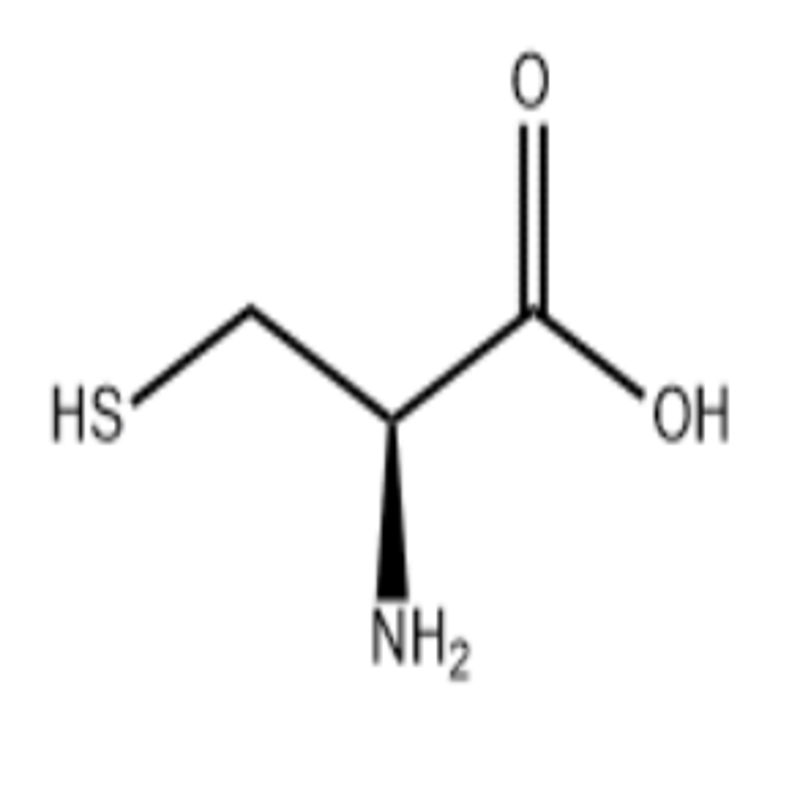-
Categories
-
Pharmaceutical Intermediates
-
Active Pharmaceutical Ingredients
-
Food Additives
- Industrial Coatings
- Agrochemicals
- Dyes and Pigments
- Surfactant
- Flavors and Fragrances
- Chemical Reagents
- Catalyst and Auxiliary
- Natural Products
- Inorganic Chemistry
-
Organic Chemistry
-
Biochemical Engineering
- Analytical Chemistry
- Cosmetic Ingredient
-
Pharmaceutical Intermediates
Promotion
ECHEMI Mall
Wholesale
Weekly Price
Exhibition
News
-
Trade Service
Beijing Yanqing District Market Supervision Bureau Zhang Xiaohui Song Dexing
Is a 500g bag of lamb sold in supermarkets pre-packaged food? What about cake shops selling 8 yuan per bag of cakes and ramen for takeaway delivery? Many grassroots law enforcement officers have been plagued
by similar problems.
The Food Safety Law stipulates that the production and operation of prepackaged food and bulk food with problems affecting food safety in the content of labeling will bear the consequences of
compensation and administrative punishment.
Therefore, whether we can accurately distinguish between pre-packaged food and bulk food is not only related to the health and life safety of consumers, but also related to the operating costs and survival and employment of operators, and also related to whether law enforcement personnel can administer according
to law.
Recently, the Beijing No.
4 Intermediate People's Court ruled on a case
related to how to distinguish prepackaged food.
The judgment of the case clarifies: "When determining whether a food is a prepackaged food, it should not only be determined from the final state of the food after packaging, but also from whether the food production entity has the food production and processing qualifications, whether the production method requires immediate processing, production, sales and shelf life
.
" Pre-packaged food cannot be equated with packaged food, and its core meaning emphasizes the starting state and production and processing conditions of the food, rather than the final state
.
In China's existing food safety supervision system, pre-packaged food refers to packaged products produced by entities with food production and processing qualifications, and four types of food are clearly excluded, namely ready-made ready-to-sell food, bulk food, edible agricultural products, and food sold by small workshops and food
vendors.
”
The facts of the case show that Company A purchased dried sea cucumbers from the manufacturer and sold
them in bulk weighing according to customer needs.
After purchasing dried sea cucumbers from Company A, consumers reported to the Beijing market supervision department that the contents of dried sea cucumber food labels did not comply with the provisions of the Food Safety Law on prepackaged food labeling, and the market supervision department determined that the dried sea cucumbers sold by Company A were bulk foods and had clearly indicated the relevant labeling matters to consumers, and the consumer filed an administrative lawsuit
.
One of the points of contention is whether the food in question is in bulk or
pre-packaged.
The courts of first and second instance both supported the decision
of the market supervision department.
The line between pre-packaging and bulk is still blurred
What is "pre-packaged food"? The Food Safety Law clarifies this, that is, "food
packaged in advance or made in packaging materials and containers.
" "So is packaged food or food pre-packaged or made in packaging materials and containers pre-packaged food?
The author believes that since the definition only explicitly stipulates fewer constituent elements, but from actual life experience and the matters that should be indicated on the labels of pre-packaged food and bulk food in the Food Safety Law, it can be deduced that the meaning of "pre-packaged food" should contain some unwritten constituent elements
.
Prepackaged food is not equivalent to packaged food, and prepackaged food should specifically refer to pre-packaged or highly processed food produced by producers with food production and processing qualifications that are not suitable for food business operators to unpack and sell due to food
safety, quality, trading habits and other reasons.
In addition, the Food Safety Law does not stipulate the meaning of "bulk food", and the author believes that food can be divided into four categories: edible agricultural products, ready-made ready-to-sell foods, simple processed foods and highly processed foods, and the relevant concepts of prepackaged foods can be distinguished
.
Edible agricultural products refer to various plant, animal husbandry, fishery products and their primary processed products
that can be eaten.
Common are rice, millet, flour, vegetables, etc
.
The packaging and labeling of edible agricultural products sold by food traders shall be subject to the relevant provisions
of the Measures for the Supervision and Administration of the Quality and Safety of Edible Agricultural Products Market Sales.
The content of labeling in the Measures for the Supervision and Administration of the Quality and Safety of Market Sales of Edible Agricultural Products is different
from the content of labeling prepackaged food and bulk food in the Food Safety Law.
The Measures for the Supervision and Administration of the Quality and Safety of Edible Agricultural Products Market Sales are departmental rules for the implementation of relevant matters of the Food Safety Law, and shall not contradict the superior law
.
Therefore, the author believes that prepackaged food and bulk food in the Food Safety Law do not include edible agricultural products
.
From the actual life experience, edible agricultural products such as soybeans and leeks also do not have label attributes
such as product standard code, production license number, production date, and shelf life.
Ready-made food for sale includes food that is processed, produced and sold to consumers on the fly by food service operators, small restaurants, grocery stores, food
vendors, etc.
This type of food does not have label attributes
such as product standard code, production license number, and shelf life.
Therefore, even if the steamed buns made on site are packaged in quantitative quantities and then sold to consumers or delivered to consumers by the takeaway brother to the hands of the on-site beautifully packaged food (such as boxed lunches, bagged soy milk, barreled porridge, etc.
), they still do not belong to pre-packaged food and bulk food
under the Food Safety Law.
Simple processed food refers to food
produced by small workshops with small scale and simple processing and production technology.
For example: steamed steamed buns, cooked food, making tofu, cold skin, Chinese pastries, etc
.
Small workshops shall obtain a small workshop production and operation license
.
The main reason why the Food Safety Law authorizes local legislation to manage small workshops is that their small scale, simple production and processing food technology, low food safety risks, do not need to meet the conditions for applying for food production licenses, and the food labeling matters processed and produced by small workshops cannot meet the requirements of
pre-packaged food under the Food Safety Law.
However, the safety risk of food produced and processed by small workshops is higher than that of ready-made and sold food, and it is necessary and conditional to mark the name, production date or production batch number, shelf life, and the name, address, contact information of the producer and operator on the packaging
.
The Beijing Provisions on the Administration of Small-scale Food Production and Operation are not equivalent to the meaning of "pre-packaged food" in the Food Safety Law, and the food produced and processed by small workshops is a bulk food
under the Food Safety Law.
Highly processed food refers to food produced by complex processes by food
producers who should have the corresponding food production and processing conditions.
Such food producers shall obtain a food production license
.
Only food produced by such food producers can meet the requirements
of the labeling of prepackaged food or bulk food under the Food Safety Law.
In order to facilitate transactions, such foods are usually packaged in quantitative quantities
, whether they are large packages at the factory or small packages in supermarkets.
For example, tea factories produce 50-kilogram bales of refined tea leaves, and supermarkets sell 5-pack bread per bag
.
So are all these foods pre-packaged? Apparently not
.
So where should you distinguish between prepackaged food and bulk food? The author believes that pre-packaged food should be identified in the production process, because only in the production process can there be a product standard code and production license number, and only the producer can know the production date and set the shelf life
.
Since it is not queried which food must be produced in pre-packaged form, then following the legal proverb of "freedom without prohibition by law", such producers can independently decide the packaging form of the food produced, and food safety, food quality, and trading habits should be important considerations
.
For example, pasteurized milk, ham sausages, carbonated drinks, bottled liquor are usually pre-packaged foods, and large packaged teas and pastries that exceed the number purchased by the average consumer should usually be bulk food
.
For some foods that are difficult to distinguish, the packaging form of similar foods should also be consulted with the producer or relevant departments for identification
.
It is subject to comprehensive judgment according to laws and regulations
The author believes that the boundary between pre-packaged food and edible agricultural products and ready-made ready-to-sell food is still relatively clear, but the boundary with bulk food is relatively blurred and requires comprehensive judgment
.
First, determine whether it is edible agricultural products or ready-made and sold food
.
If yes, it is not prepackaged food or bulk food under the Food Safety Law; If not, then judge whether the production entity is a small workshop with small scale and simple production and processing technology without a food production license, if so, it belongs to the bulk food stipulated in the Food Safety Law; If not, continue to see whether the labeling on the food packaging complies with the provisions of Article 67 of
the Food Safety Law.
If so, pre-packaged food; If it does not conform, it will be comprehensively judged whether it is a prepackaged food based on the type of food, the need to ensure food
safety and quality, trading habits, etc.
, and refer to the labeling of similar foods.
For example, different brands of carbonated beverages are pre-packaged foods, and if one or more of the labeling items such as production license number, product standard code, storage conditions and other labeling items are missing on the packaging of a brand of carbonated beverages, it is still pre-packaged food
.
Another example is that the whole box of quantitative packaging of mooncakes, because according to trading habits, need to be unpacked for retail, even if their packaging is marked with the ingredient list, product standard code, production license number, it is not a pre-packaged food, but should belong to bulk food
.
Food products that meet the labeling requirements of prepackaged food under the Food Safety Law are not prepackaged food
.
The author believes that producers with food production license qualifications in quantitative packaging of edible agricultural products, on the basis of fulfilling the obligations stipulated in laws, regulations, rules and other normative documents, independently adopt a higher standard of labeling form, from the perspective of food safety law to ensure food safety, is a behavior worthy of legal encouragement, in the absence of clear provisions in the law, should not be punished for missing a label matter, otherwise it is inconsistent
with the legislative purpose of the Food Safety Law 。 For example, a producer with a food production license only grades and quantitatively packages the purchased soybeans and sells them out of the factory, and the food is still an edible agricultural product, even if the product standard code, ingredient or ingredient list is not indicated, it does not violate the provisions
of the Food Safety Law on the labeling of prepackaged food.
Prepackaged food sold by food sellers who unpack, split, and weigh is still prepackaged food
.
Prepackaged foods usually need to be packaged to ensure the taste, hygiene, and safe expiration date
of the food.
From the perspective of ensuring food safety and consumers' right to know, the author believes that food sellers should clearly indicate to consumers the labeling of the prepackaged food after unpacking and selling it separately, and cannot only label it according to the labeling of bulk food
.
For example, when an operator unpacks 25 kg of prepackaged delicate rice purchased and sells it in the form of "bulk weighing" in the business premises, it should still disclose to consumers all the matters marked on the label on the
original packaging.
China Food News(November 03, 2022 Edition 03)
(Editor: Yang Xiaojing).







